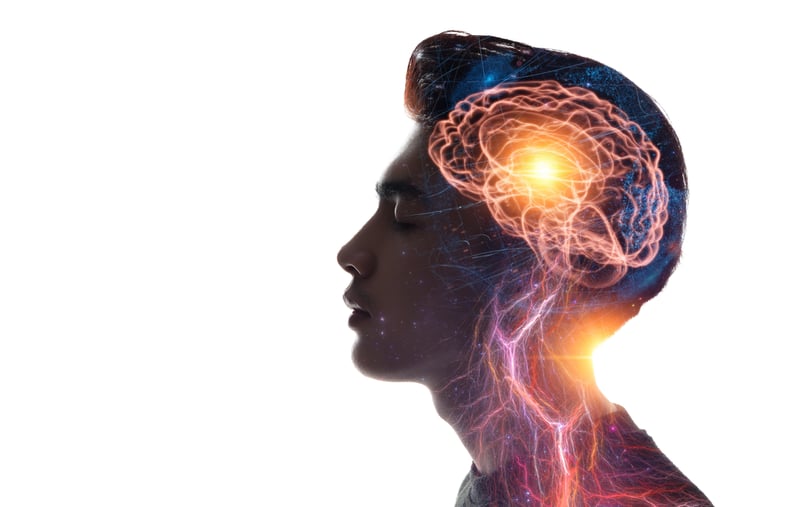Get Healthy!

- Posted March 17, 2022
Memory Issues Plague Long COVID Patients
Memory and concentration problems haunt 7 in 10 patients with long COVID, a pair of new studies indicate.
The findings suggest that COVID-19 has a notable impact on brain health, even if the precise underlying mechanisms remain unclear, British researchers said.
"We set out to explore whether some of the long-lasting issues in COVID -- things like inflammation and abnormal blood clotting -- had an impact on people's ability to remember and make decisions," explained senior study author Lucy Cheke.
"This was because we know from previous work that when there's a lot of inflammation in the body, and when blood forms lots of clots, this can often have an impact on the brain," added Cheke, an associate professor in the Department of Psychology at the University of Cambridge. "[And] our main finding was that people with ongoing symptoms -- with long COVID -- had measurable reductions in memory ability."
About 10% to 25% of all COVID patients are believed to be at risk for developing long COVID, the research team noted.
In the March 17 issue of the Frontiers in Aging Neuroscience, Cheke and her colleagues discuss the work they did following patients who were infected with the original Alpha variant of the coronavirus.
All the long COVID participants first enrolled in the study sometime between October 2020 and March 2021, while Alpha was still circulating. (None of the patients had been infected with later coronavirus strains Delta or Omicron.)
Most had been infected at least a half year prior to enrollment, and only a handful had been so sick at the time of infection that they needed to be hospitalized.
Patient symptoms were tracked for about a year and a half, on average.
In the end, the team found that 78% reported difficulty concentrating, while 69% reported experiencing "brain fog." About 68% indicated suffering from routine forgetfulness. Meanwhile, 60% said they struggled to identify words when speaking.
When compared with men and women who had never had COVID, long COVID health issues translated into notably lower scores on thinking tests gauging the ability to recall words, remember images and/or make decisions.
The worse a long COVID patient's symptoms, the worse he or she performed on such tests, the research found.
The team also observed that long COVID patients who had initially struggled with certain symptoms when first infected were more likely to develop chronic thinking problems. Those initial symptoms included fatigue, dizziness and/or headaches.
Lyn Curtis, a member of Cheke's team, experienced this firsthand as a patient.
"Having been fit and active all my life, after catching COVID-19 during the first wave, my son -- then 13 -- and I didn't seem to recover," she said in a Cambridge news release. "We were left with debilitating fatigue and a confusing mix of strange and life-changing symptoms. I was also left with significant neurological symptoms, including speech and language issues, which had a huge impact on my life."
Given that such symptoms "impacts the most on my quality of life and ability to work," Curtis thinks that studies such as these are "essential," to get a better handle on what's actually going on and develop effective treatments.
Dr. Colin Franz is a physician-scientist at Northwestern University in Chicago. He agreed that the research is still murky when it comes to pinpointing the cause of these thinking problems.
"We don't know for sure what causes these issues with brain function and health from long COVID," said Franz, who wasn't involved with the studies.
"The reasons may vary from person to person," he said. "For example, one person may have poor sleep and breathing difficulties that lead to chronic fatigue and indirectly affect brain health and function. In other people, there may be persistent levels of inflammation in the body."
Still, Franz said long COVID patients should "stay hopeful."
"Look for a comprehensive post-COVID clinic in your community, which can connect you with a multitude of clinicians who can help address all lingering impairments of COVID in a more holistic fashion," he advised. "For example, some people need to see a cardiologist or pulmonologist for breathing treatments, others a rheumatologist or physiatrist for painful joints.
"Most of our patients improve with a structured approach, yet the improvements are gradual," Franz said. "You don't have to struggle through this by yourself."
More information
There's more on long COVID at U.S. Centers for Disease Control and Prevention.
SOURCES: Lucy Cheke, PhD, associate professor, Department of Psychology, University of Cambridge, Cambridge, England; Colin K. Franz MD, PhD, physician-scientist, Shirley Ryan AbilityLab, and assistant professor, physical medicine and rehabilitation and neurology, Feinberg School of Medicine, Northwestern University, Chicago; University of Cambridge, news release, March 17, 2022; Frontiers in Aging Neuroscience, March 17, 2022
